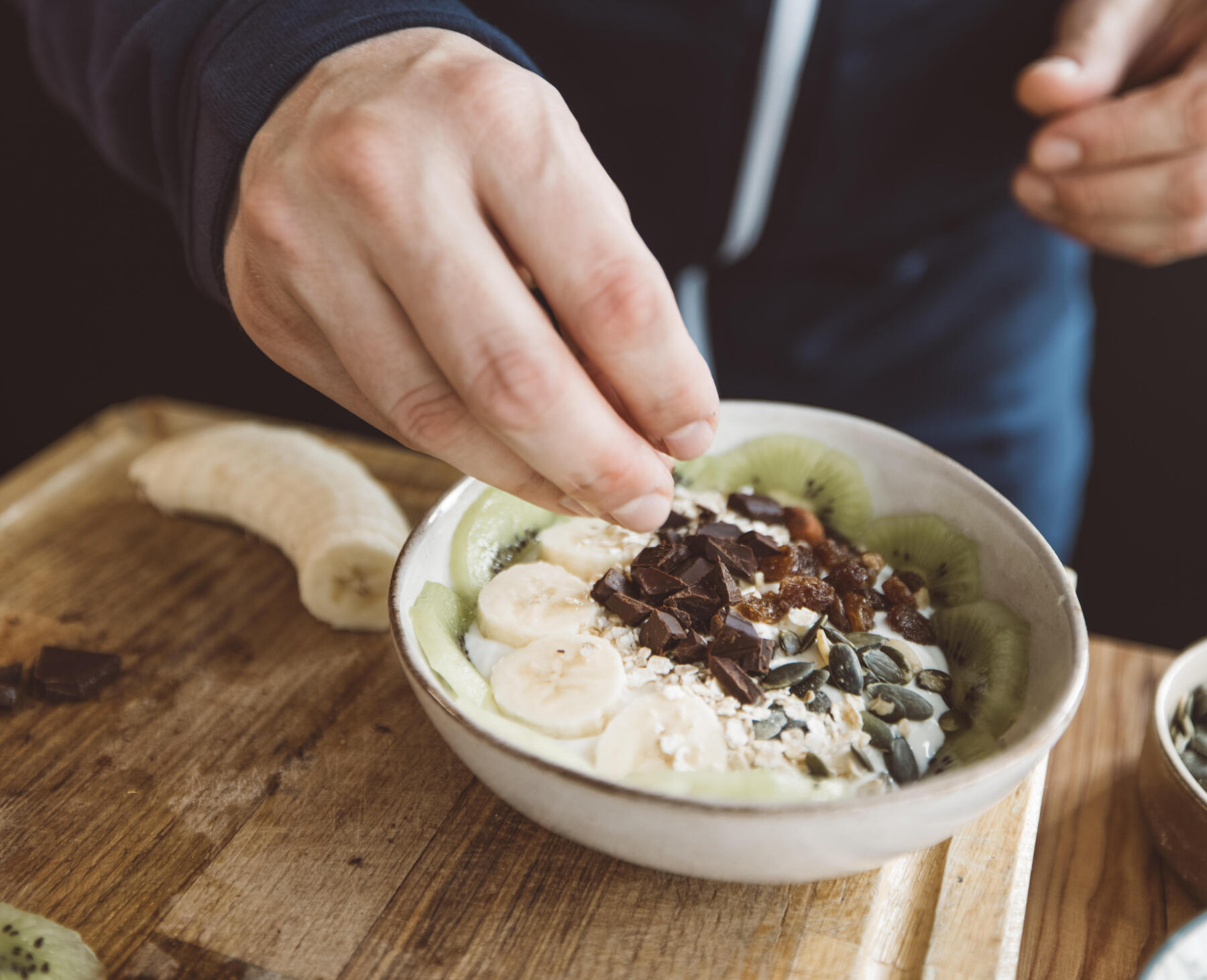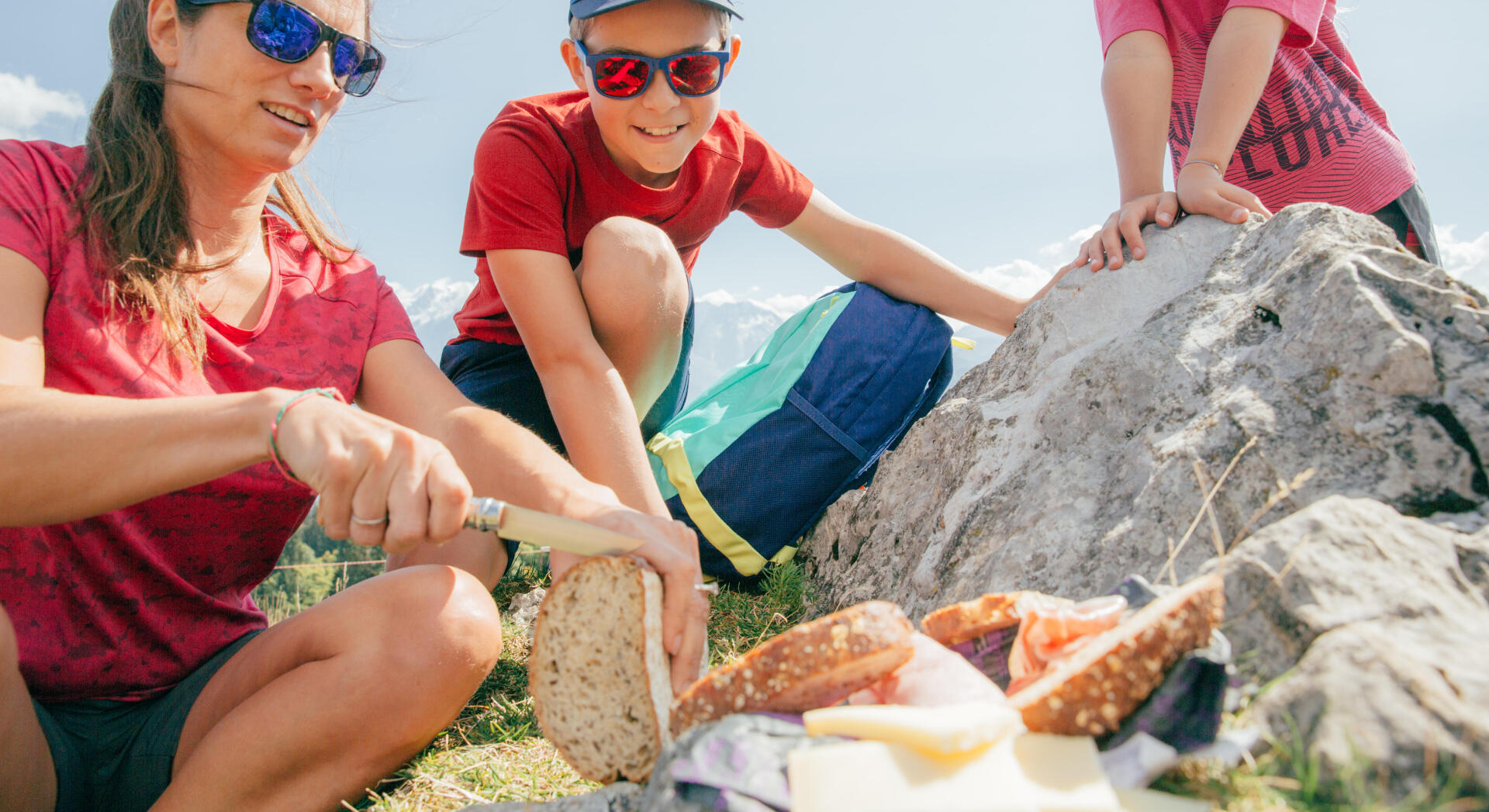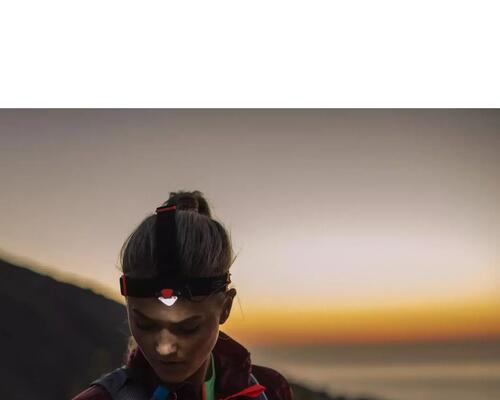During your hike, make sure you drink in small sips to compensate for water loss linked to perspiration. Plan for 2 energy snacks between meals (every 2hrs) depending on how you feel.
A few examples of quick snacks:
- Energy bars (cereal, almond, fruit jelly)
- Dried fruit (dates, apricots, etc.)
- Oleaginous (almonds, cashew, etc.)
- Dark chocolate (depending on the heat)
For hikes lasting longer than 2hrs, make sure you drink sodium-rich water to compensate for mineral losses (naturally sodium-rich water or effort drink). Ideally, bring 1L plain water without added minerals and 1L with a little added sodium and sugar.
It's finally time for a convivial lunch break, for which several simple and efficient options are available. Of course, if salami, cheese and crisps are an integral part of your picnic, you can succumb to the temptation in reasonable quantities.
As a reminder: if you overdo it at lunch, the rest of the hike will be impacted. This meal should be an enjoyable moment but it should also be healthy, not too fatty and easily digestible.
A few examples of easy-to-carry meals for hikes:
- The Sandwich, simple and efficient.
(for example: wholemeal bread + mustard + mozzarella + Speck ham + tomato)
- The Wrap, a more compact newcomer which is just as tasty.
(for example: corn tortilla + guacamole or hummus + chicken + avocado + green salad + slice of emmental cheese)
- The cold salad, a tupperware full of yummy things which you won't forget to bring home. That's a tip!
(for example: rice + chicken + hard-boiled egg + tomatoes + radish + feta + white cheese dressing/ balsamic vinegar)
- The freeze-dried meal (quick and easy-to-carry solution for trips lasting several days) to be used if you have camping gear, in particular everything you need to boil water. As well as not being very cumbersome, it is quite tasty (my favourite: pasta bol) and provides good energy values, quickly replenishing the stocks you have used up.
If you are still hungry, finish with a dessert such as seasonal fresh fruit. Keep it light for the adventure awaiting you during the rest of the afternoon.
Remember to drink plenty of water, and nothing but water (still or sparkling as preferred), during the meal to recover.Avoid alcohol as it contributes to dehydration.
After a toilet break and a moment to digest in front of the most beautiful screen in your area (the landscape of course), you're ready to get back on route.
PS: Hiking promotes respect for the environment among many athletes, so don't forget that rubbish goes in your bag, not in nature :)






